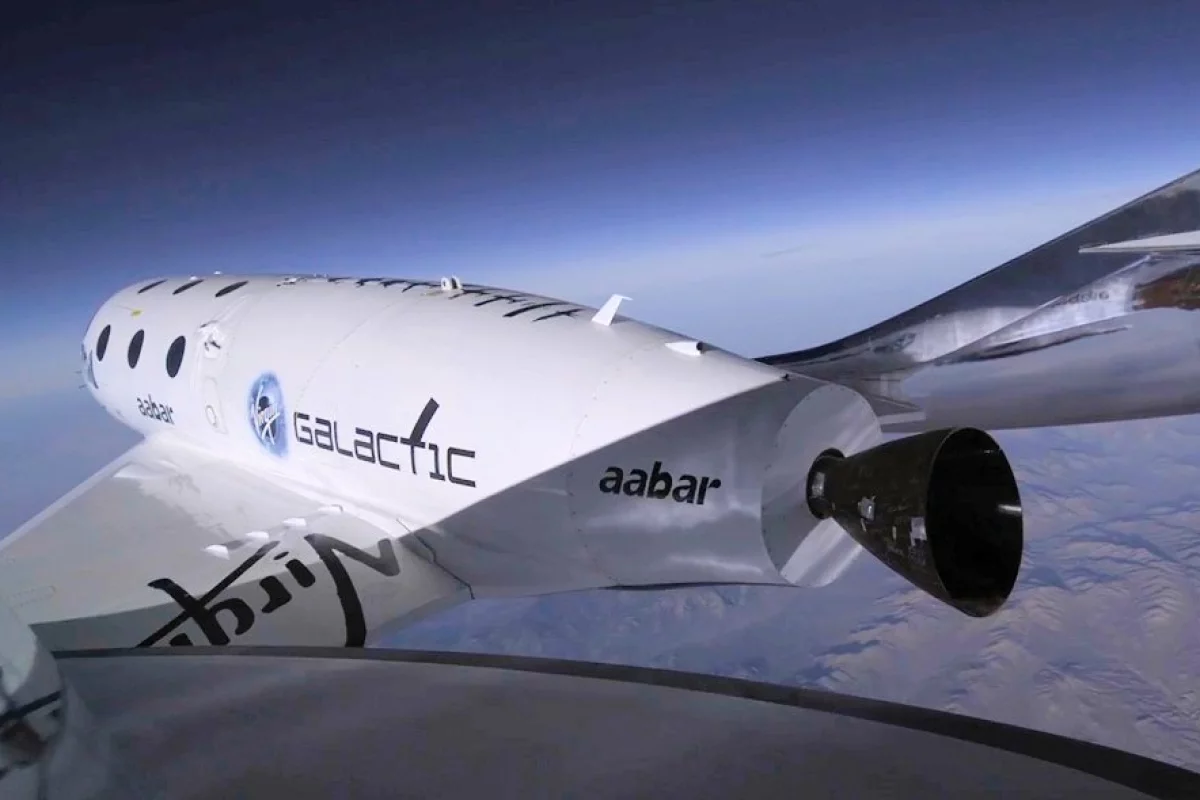Virgin Galactic has signed a contract with the Italian Air Force to conduct research using the SpaceShip Two suborbital spaceplane. Set to fly as soon as 2020, the agreement will see three Italian Air Force payload specialists and a rack of research experiments taken to the edge of space where they will experience several minutes of microgravity.
Though Virgin Galactic's SpaceShip Two spaceplane is destined to carry paying passengers, it's also designed to carry research payloads. So far, SpaceShipTwo has carried payloads provided through NASA's Flight Opportunities Program, but the new contract is said to be the first where a government department has funded a specialist-tended research flight on a commercial spacecraft.
In the upcoming flights, the specialists will be able to leave their seats during the several minutes of weightlessness to operate the experiments. According to Virgin Galactic, having personnel directing controlling experiments in real-time on a suborbital flight means that the missions can be simpler and depend less on automated systems. In addition, SpaceShipTwo is more economical and allows for better repeatability.
Meanwhile, Virgin Galactic will provide training and help the specialists to prepare for their missions, as well as pre-flight support for the experiments. The planned research experiments, created with the help of the Italian National Research Centre (CNR), include monitoring the changes in the human body as it moves from gravity to zero gravity, and a study of the chemistry of green fuels.
"The agreement between the Italian Air Force and Virgin Galactic is the result of the cooperation with the relevant Italian and US space institutions which has been ongoing for a very long time," says Maurizio Greganti, Chargé d’affaires at the Embassy of Italy in Washington DC. "For the first time, an Italian Government institution is acquiring a private suborbital flight. We are delighted with this level of cooperation which is a further confirmation of the strength and potential of the relations between our two countries, which expand to cutting-edge space technology."
Source: Virgin Galactic




